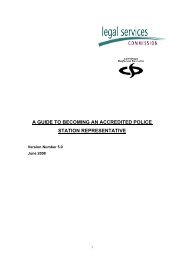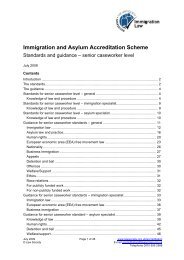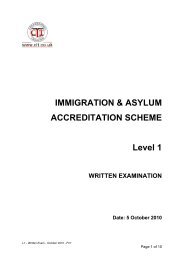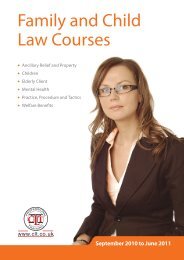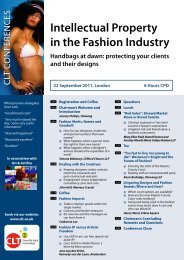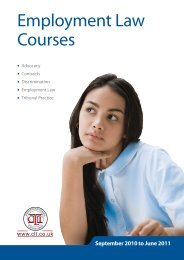Immigration – Reaccreditation Assessment Regulations and ... - Clt
Immigration – Reaccreditation Assessment Regulations and ... - Clt
Immigration – Reaccreditation Assessment Regulations and ... - Clt
You also want an ePaper? Increase the reach of your titles
YUMPU automatically turns print PDFs into web optimized ePapers that Google loves.
(vii) Requiring the c<strong>and</strong>idate to withdraw from the course or assessments<br />
(viii) Refusing the c<strong>and</strong>idate any entitlement to any re-assessment<br />
(ix) Such other penalty as may be appropriate in the circumstances<br />
In deciding the appropriate penalty the following will be taken into account:<br />
(a) Whether there was an intention to deceive rather than incompetence,<br />
carelessness or failure to appreciate the assessment requirements<br />
(b) The advantage which could have been gained by the offence<br />
(c) Whether the c<strong>and</strong>idate has admitted the offence <strong>and</strong> shown remorse<br />
3. Procedures for dealing with suspected cases of cheating<br />
3.1 Preliminary Procedures<br />
(a) Any c<strong>and</strong>idate suspected of cheating in a supervised assessment must be<br />
approached at the time by an invigilator or assessor, wherever possible, <strong>and</strong><br />
any unauthorised material confiscated. The c<strong>and</strong>idate’s examination, test,<br />
assessment answer book, where there is one, should be endorsed at this<br />
point with the exact time, date <strong>and</strong> signature of the invigilator or assessor.<br />
(b) Except where the c<strong>and</strong>idate is causing a disturbance which is likely to affect<br />
other c<strong>and</strong>idates, the suspected c<strong>and</strong>idate should be permitted to complete<br />
the supervised assessment.<br />
(c) Before leaving the room where the supervised assessment is taking place,<br />
the c<strong>and</strong>idate should be informed that the incident will be reported to the<br />
Programme Development Director. The c<strong>and</strong>idate should also be instructed<br />
to attend any remaining examinations, assessments, tests or oral<br />
assessments for which they have registered to sit on the course as normal.<br />
(d) A full report of the incident must be written immediately after the supervised<br />
assessment, by the chief invigilator or chief assessor <strong>and</strong> submitted to the<br />
Programme Development Director.<br />
(e) The assessment in question should be marked as though cheating is not<br />
suspected, but the <strong>Assessment</strong> Board should not consider the c<strong>and</strong>idate’s<br />
marks until it has been adjudged whether or not an offence has been<br />
committed.<br />
(f) The Programme Development Director responsible for the course in which<br />
the assessment is located should analyse the work or conduct in question in<br />
order to assess the extent <strong>and</strong> nature of the alleged offence <strong>and</strong> determine<br />
whether there is a case to answer. If they decide there is a case to answer<br />
they will require the c<strong>and</strong>idate to attend a meeting, normally within 5 working<br />
days. (C<strong>and</strong>idates resident abroad may provide written submissions in place<br />
of their attendance). Prior to the Preliminary Meeting the Programme<br />
Development Director will outline the allegation in writing to the c<strong>and</strong>idate.<br />
May 2011 <strong>–</strong> V14 25



